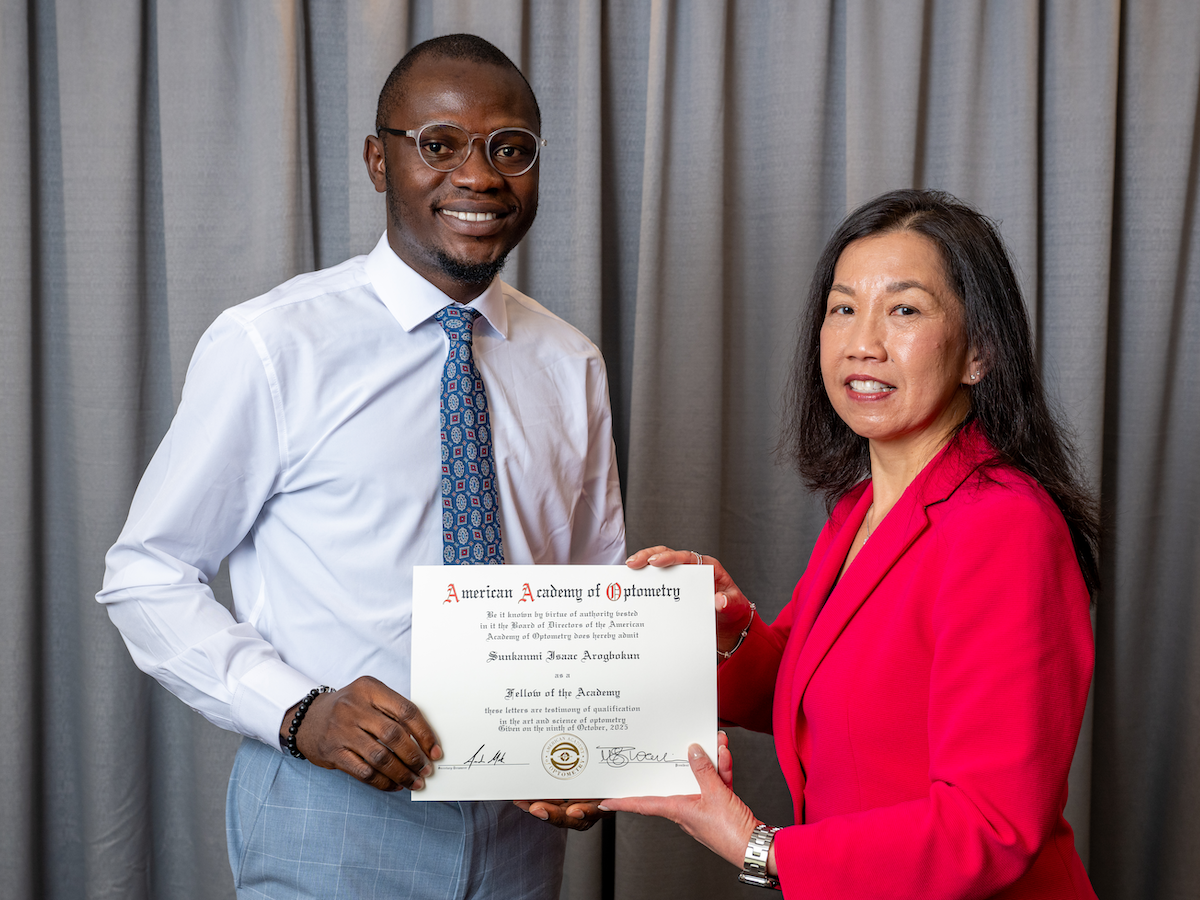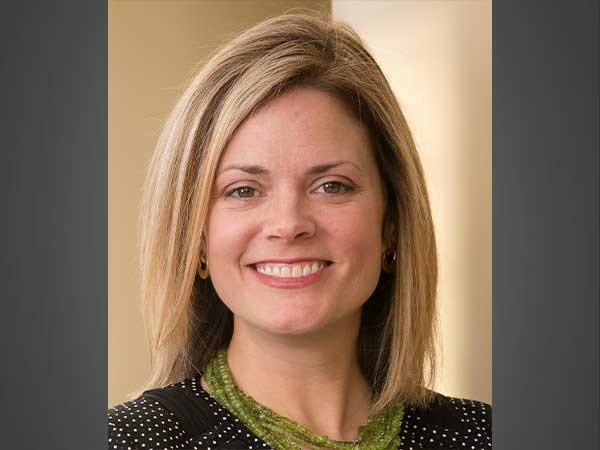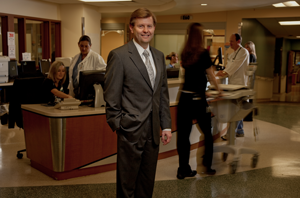 John McWhorter is graduating from the first Executive Doctoral class on Dec. 15. John McWhorter has a lot on his plate. He’s the president of Baylor University Medical Center and Senior Vice President Hospital Division at Baylor Health Care System in Dallas, Texas. He’s responsible for $2.7 billion in revenues for 18 hospitals and more than 12,000 employees. He’s a family man whose mission works have led him to Africa, Belize, Honduras and Mexico.
John McWhorter is graduating from the first Executive Doctoral class on Dec. 15. John McWhorter has a lot on his plate. He’s the president of Baylor University Medical Center and Senior Vice President Hospital Division at Baylor Health Care System in Dallas, Texas. He’s responsible for $2.7 billion in revenues for 18 hospitals and more than 12,000 employees. He’s a family man whose mission works have led him to Africa, Belize, Honduras and Mexico.
It would seem that McWhorter has little time for anything else. In just over three years, he has managed to squeeze in a doctoral degree. On December 15, 2012, McWhorter will be one of eight people graduating from the first class of the Executive Doctor of Science Degree in Administration-Health Services from the School of Health Professions at the University of Alabama at Birmingham.
“Being able to graduate with my classmates was the primary driver for me to complete my dissertation on time,” says McWhorter. “We completed our dissertations in a year or less which seems pretty quick.”
The three-year Executive Doctoral program was created with busy executives in mind, combining distance learning and required visits to the UAB campus for eight days per semester. This allows students the opportunity to complete the program while maintaining their executive responsibilities.
“We were overwhelmed with requests for an executive doctoral program from healthcare executives,” says S. Robert Hernandez, Dr.P.H., professor and director of the doctoral program in Administration-Health Services in the Department of Health Services Administration. “We provide students with an opportunity to develop valuable analytical and strategic management skills. They have an opportunity to perfect those skills by conducting action learning assignments and applied research.”
Hernandez says accepting students is highly selective ,and the program only admits executives who will be able to contribute to the learning environment since students are expected to learn from each other as much as from the faculty.
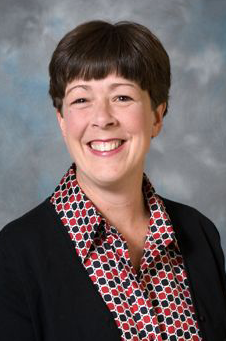 Ginny RazoVirginia A. Razo and her CEO were looking at a variety of master’s programs for her to take for succession planning. Finding a formal executive program that would engage a cohort of higher-level thinking individuals is what sold to her to this program.
Ginny RazoVirginia A. Razo and her CEO were looking at a variety of master’s programs for her to take for succession planning. Finding a formal executive program that would engage a cohort of higher-level thinking individuals is what sold to her to this program.
“The discussions in the classroom and team project work with fellow students was invaluable,” says Razo, Chief Operating Officer at Tahoe Forest Health System in Truckee, Calif. “Healthcare executives typically learn from continuing education and informal networks built over the years. This program allowed me to establish professional relationships with colleagues that I would never otherwise have been able to have.”
Shands Jacksonville Medical Center President and CEO Jim Burkhart, of Jacksonville, Fla., says he was able to apply what he learned in class immediately to his job.
“The program has allowed me to sharpen my analytical skills, my strategic thinking skills, and my understanding of the academic healthcare environment,” says Burkhart. “I also found the financial, insurance, and exposure to other healthcare systems throughout the world to be very beneficial.”
McWhorter says the program changed his reading habits and review of healthcare literature. He also has a new awareness of the importance of accurate and complete data when it comes to his scientists and research physicians.
“I can now ascertain evidence-based research from anecdotal stories and search for innovative programs that have been empirically tested in the literature,” says McWhorter. “The new focus on chronic disease management combined with my doctoral education has resulted in allocation of resources to study empirical programs of chronic disease management which should accelerate the improvement process.”
The soon-to-be-graduates all agree that it takes a dedicated person to take this program balancing work, family and school.
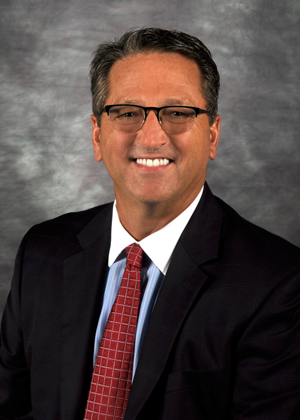 Jim Burkhart“Obviously, this was the most difficult part of the program,” says Burkhart. “I think you have to be self-motivated and not procrastinate when you have school work that is due. I prided myself on always turning my assignments in early.”
Jim Burkhart“Obviously, this was the most difficult part of the program,” says Burkhart. “I think you have to be self-motivated and not procrastinate when you have school work that is due. I prided myself on always turning my assignments in early.”
Razo quickly applied her time management skills for her school work load and informed family and co-workers of any conflicts or important milestones.
”The program work is staged in such a way that, if you plan appropriately, the amount of work is not overwhelming,” says Razo. “In fact, the curriculum was created in such a way that material learned in early classes was reinforced as I moved through the program.”
The group feels some pride being among the first class to graduate from the program.
“I can’t get use to calling myself doctor yet and I still wake up thinking that I must have some assignment due,” says Burkhart.
